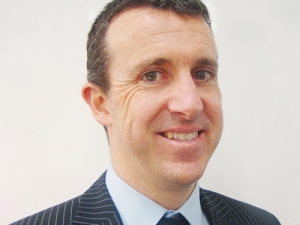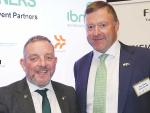Analysts do not believe there will be a rapid production response to the abolition of milk quota in Europe.
That’s despite signs the ‘superlevy’ for 12 member states may have forced farmers to put the brakes on production in the three months leading up to the April 1 end of the thirty-year-old regime.
Exceeding annual quota incurs a superlevy of €28 per 100kg of liquid milk over the limit nationally, the equivalent of about NZ$5/kgMS.
A dozen of the European Union’s 28 member states are expected to breach their national quotas for the year ending March 31, triggering penalties for any of their farmers exceeding the limits. Leading the likely fines table are Germany (€300m), Poland (€160m) and Netherlands (€140m). Farmers in Ireland, Austria, Denmark, Lithuania, Estonia, Italy, Belgium, Spain and Cyprus are also likely to be pinged, taking the penalty tally to €750m.
However, superlevy fines for the final year of quota may not impact farmers as much as in previous years, says UK industry body Dairy Co, thanks to a European Commission ruling that member states may choose to stagger superlevy payments to ease cashflow pressure.
Dairy Co notes that in January EU production eased 0.1% compared to January 2014, the first year-on-year monthly fall since June 2013. How much of that was due to producers cutting production in the face of falling farmgate prices – down nearly 20% year-on-year – or cutting feed inputs with the superlevy looming, is unclear. Feed wheat prices are down nearly 30% year-on-year, easing the milk price impact on margins.
Germany, France, Netherlands and Denmark recorded 1-2% falls in milk output in January, while Ireland’s was down 15%.
ASB rural economist Nathan Penny doesn’t believe that trend will be reversed overnight. “We won’t see the impact of quota coming off in the next few months but we will see it in the next few years,” he told Dairy News.
The EU has been gradually increasing member states’ quota in recent years to phase out the system anyway, so it is not the constraint it once was and prices are more important these days, he adds. “With whole milk powder at US$2500/t it’s just not profitable for them, particularly as European producers are some of the most costly.”
Westpac’s Michael Gordon also plays down the impact of the April 1 quota removal on the market.
“It should have come as a surprise to no-one. There is uncertainty as to how European farmers will respond to it but it is more of a long-term issue. The immediate pressure for now and next season is the milk price which is very low and that means the Europeans don’t have the incentive to crank up production…. The higher cost producers are losing money at these prices.”
A big unknown is how many extra cows and heifers were mated in Europe’s summer last year, when margins were still good, in anticipation of quota’s abolition.
The European Dairy Farmers Association told Dairy News it doubted anyone in Europe would be able to answer that question and Dairy Co wasn’t able to answer it either.
But Dairy Co’s senior analyst Luke Crossman did say that for British farmers removal of quota is an “opportunity for growth and a chance to displace imports”.
Processors would look to expand and a reduction in imports would be welcomed.
“Key to farmer’s successes in the future will be remaining competitive on the world stage and reducing the risks associated with price volatility.
Britain is a net importer of dairy and 2003 was the last time it reached its quota limit.
Shackles are off, says Irish Minister
Ireland's Minister for Agriculture, Food and Marine, Simon Coveney, says milk quota’s abolition is “the most fundamental change to Irish agriculture in a generation”.
“Since 1984 the industry has operated within a quota environment but now the shackles are off and the sector can start to realise its full potential,” he told a Teagasc conference to mark the occasion.
But Teagasc director Professor Gerry Boyle says expansion will not be for all. “In my view, we must clearly advise farmers that it is a case of ‘better before bigger’, efficiency before expansion, or ‘skill before scale’.”
Nonetheless, Teagasc predicts the quota’s abolition could create 15,000 extra jobs nationally within five years with every extra job in dairy and allied sectors leading to another in the wider economy.
Upgrading processing and onfarm infrastructure has already created construction jobs and milk collection businesses will need to expand considerably to cope with a target 50% increase in output, it says.


















